‘He’s causing terrible suffering’: Bolsonaro’s ‘death bill’ will devastate the rainforest and its peoples
Public opinion and shareholder action are needed to expose Brazil’s web of power and corruption, and to preserve the communities and habitats Bolsonaro seeks to destroy, writes Charlie Jaay
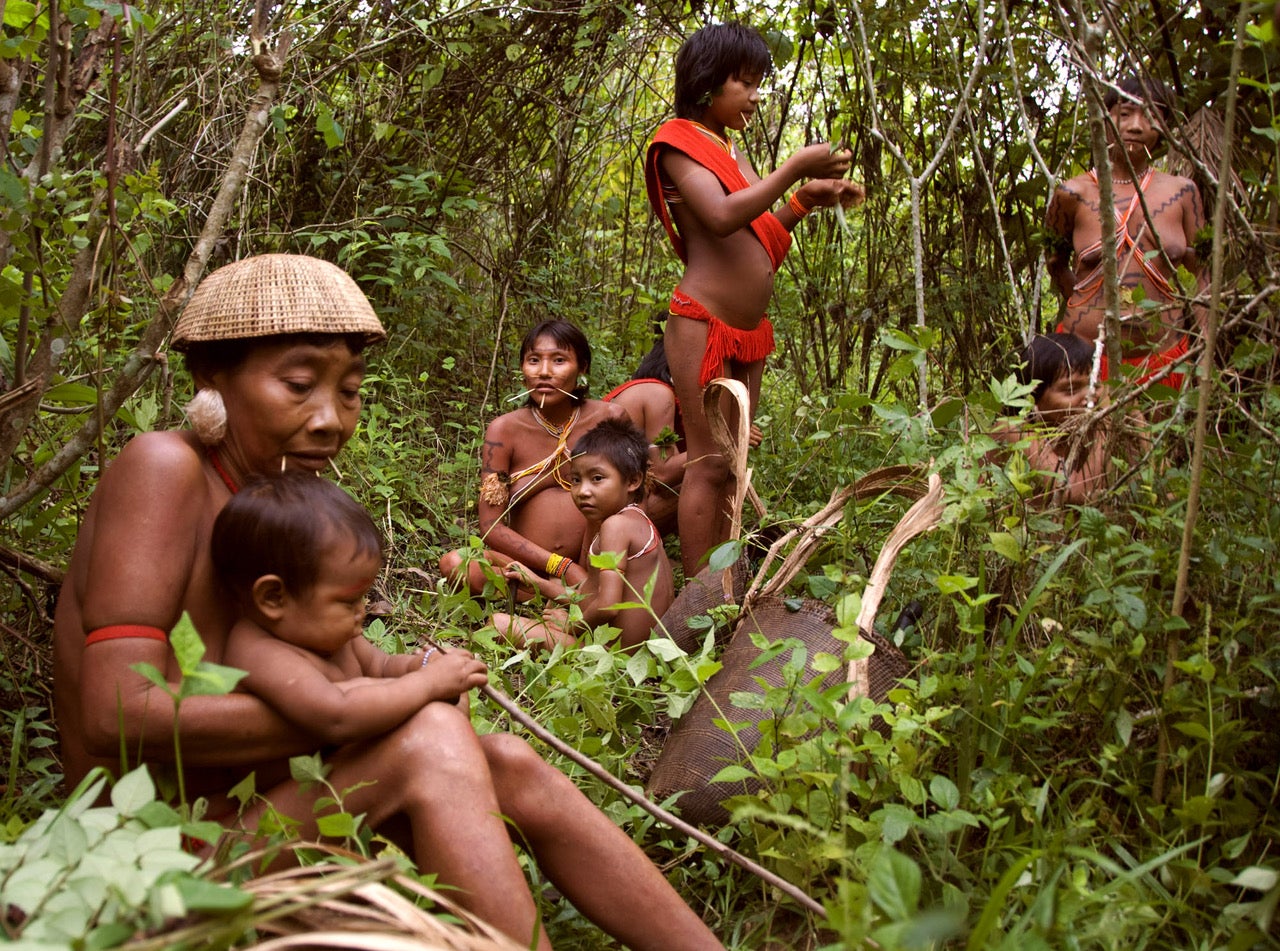
Brazil contains an unparalleled level of biodiversity. It hosts more species of mammals, freshwater fish and plants than anywhere else in the world and also has the second highest number of reptile species, the third highest number of bird species, and it holds 60 per cent of the Amazon rainforest. But it is extremely culturally diverse too and is home to 305 indigenous ethnicities, who speak more than 160 languages and have legally recognised rights over more than a fifth of the Amazon.
All this is under imminent threat thanks to Bill 191. Dubbed the “death bill” by Bolsonaro’s critics, the Association of Brazil’s Indigenous Peoples (Apib) says the bill “resumes an ethnocidal and genocidal perspective against indigenous people, contrary to what the federal constitution advocates”, and would effectively authorise the invasion of their lands.
Ninety-eight per cent of Brazil’s indigenous land is within the Amazon rainforest, and therefore its preservation is critical not just for preventing irreversible climate collapse, but also for preventing a cultural catastrophe.
Read More:
“The regulation of mining on indigenous lands has been the subject of discussions for almost 20 years in the National Congress,” said Rosana Miranda, Brazil campaign advisor at Amazon Watch. “But of all the attempts at regulation, proposed law (PL) 191 is by far the worst. So far it has been developed and discussed without any consultation process with indigenous peoples.
“If approved, it might represent an incalculable loss to the 305 indigenous ethnicities in Brazil, bringing nothing but destruction to these communities. And studies show that the approval of the bill will have a strong impact on deforestation in the Amazon.”

Brazil’s far-right and climate-change-denying president, Jair Bolsonaro, has long been known for his complete disregard of the country’s indigenous population and the environment. He came to office on 1 January 2019, promising to open up more of the Amazon to development such as mining and farming. Since then he has hugely rolled back social and environmental protections, putting ecosystems such as the rainforest and indigenous life at great risk.
Bolsonaro has also managed to weaken the structure of these environmental and indigenous agencies by placing people who know nothing about these areas in positions of power. Experts in all types of governmental positions have been replaced by key military officers who know nothing about the environment. In a similar way, Bolsonaro has a great deal of support from the Evangelical sector in congress, and has put these people in key positions within Funai, the country’s National Indian Foundation. These missionaries even tried entering territory belonging to a large concentration of uncontacted tribes during the height of the pandemic last year, but a court ruling thankfully prevented this.
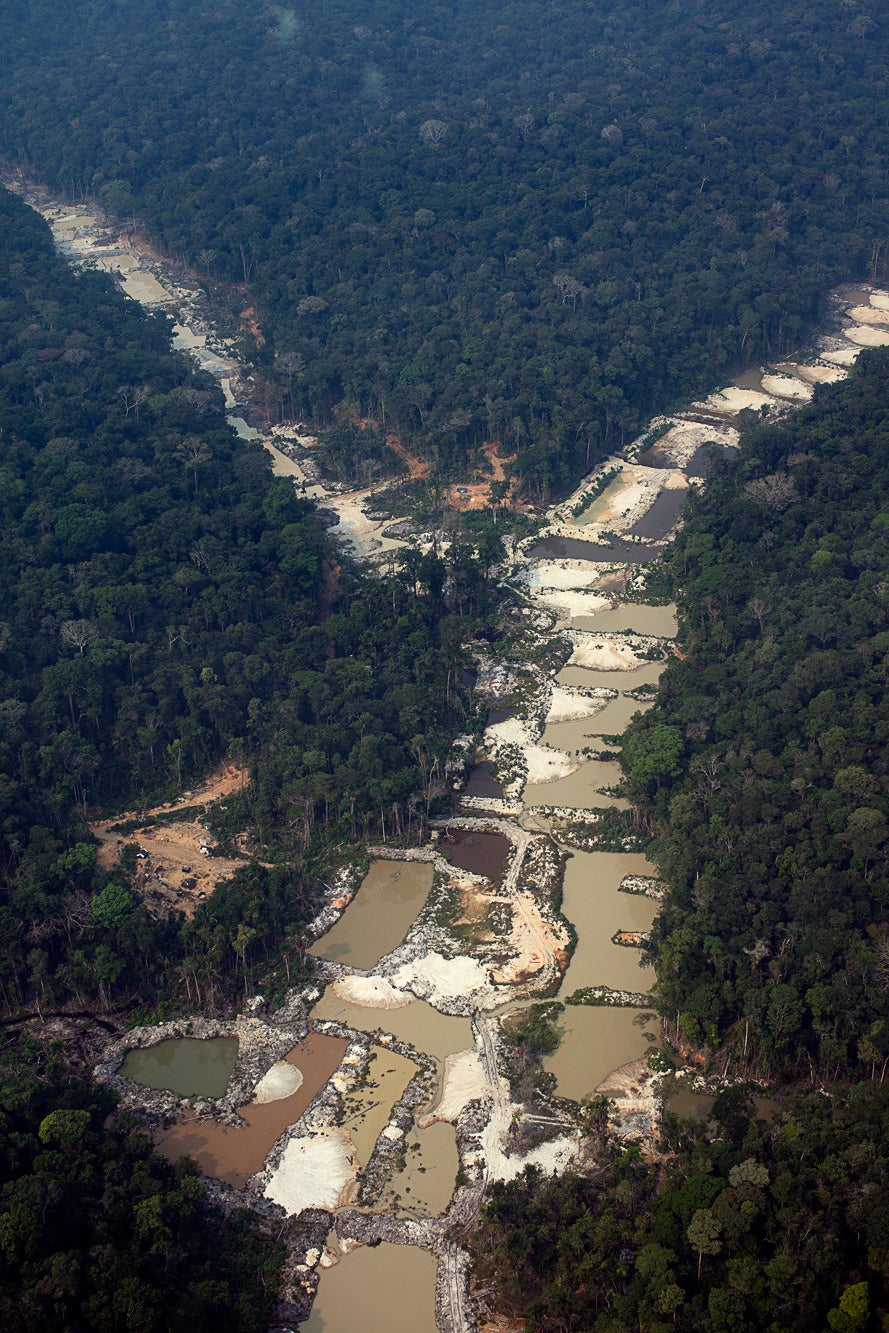
The rate of deforestation within the Brazilian Amazon has surged since Bolsonaro gained power. In 2019 his government abandoned its plan to combat and prevent deforestation in the Amazon: its deforestation instead reached a 12-year high last year. According to new data released in early April by MAAP, an organisation monitoring the deforestation of the Amazon, 65 per cent of Amazon deforestation occurred in Brazil, with this country losing 1.5 million hectares of forest last year alone, the highest primary forest loss of the nine Amazonian countries. Much of this was due to expanding cattle pasture areas.
The Amazon Fund, set up in 2008, is an effort by Brazil to collect funds to stop deforestation in Brazil. Norway has paid $1.2 billion and Germany $68 million, but both countries have now halted the funding because of the rising deforestation, and the unwillingness of Bolsonaro to act in favour of the environment. Brazil is currently requesting £725 million from western nations for preservation of the Amazon, stating that it has already done enough in terms of its preservation to warrant this financial aid. Only a third of this funding would be spent directly on forest protection, with the rest being spent on “economic development”, providing loggers, miners and farmers with alternative livelihoods.
Bolsonaro’s racist rhetoric is adding to already anti-indigenous feeling and is incentivising all sorts of people – garimpeiros (mineral prospectors), miners, loggers, cattle ranchers and land grabbers – to invade indigenous territories; and his policies have severely weakened indigenous law.
Garimpeiros wreak destruction, not just by clearing forests and polluting ecosystems, but their presence exposes indigenous people to alcohol, drugs, prostitution and sexually transmitted diseases
The constitution also ordered the mapping out of all indigenous territories in Brazil by October 1993. Nearly 18 years later, many indigenous territories are still waiting for formal demarcation, and Bolsonaro has not helped the process.
His government, along with the pro-agribusiness lobby, is backing the Marco Temporal, or “Time Limit Trick”, which states that unless indigenous people were living on their ancestral lands on 5 October 1988, (the day the Brazilian Constitution was adopted), they no longer have any right to them. If successful, this would put hundreds of indigenous territories and dozens of uncontacted tribes in grave danger.
Many areas of the country – including indigenous territories – are known to contain valuable undeveloped mineral deposits, including a range of resources such as gold, copper and iron ore, and Brazil is one of the leading mineral producing countries. Brazil’s small-scale informal mining has increased exponentially since Bolsonaro took office, and the garimpeiros are one of the strongest allies in his administration.
Traditionally, these illegal gold mines were quite small scale, but in the past five to 10 years this type of mining has become much more mechanised, industrialised and organised. It is now major-scale mining and has the backing of powerful political and business interests behind it.
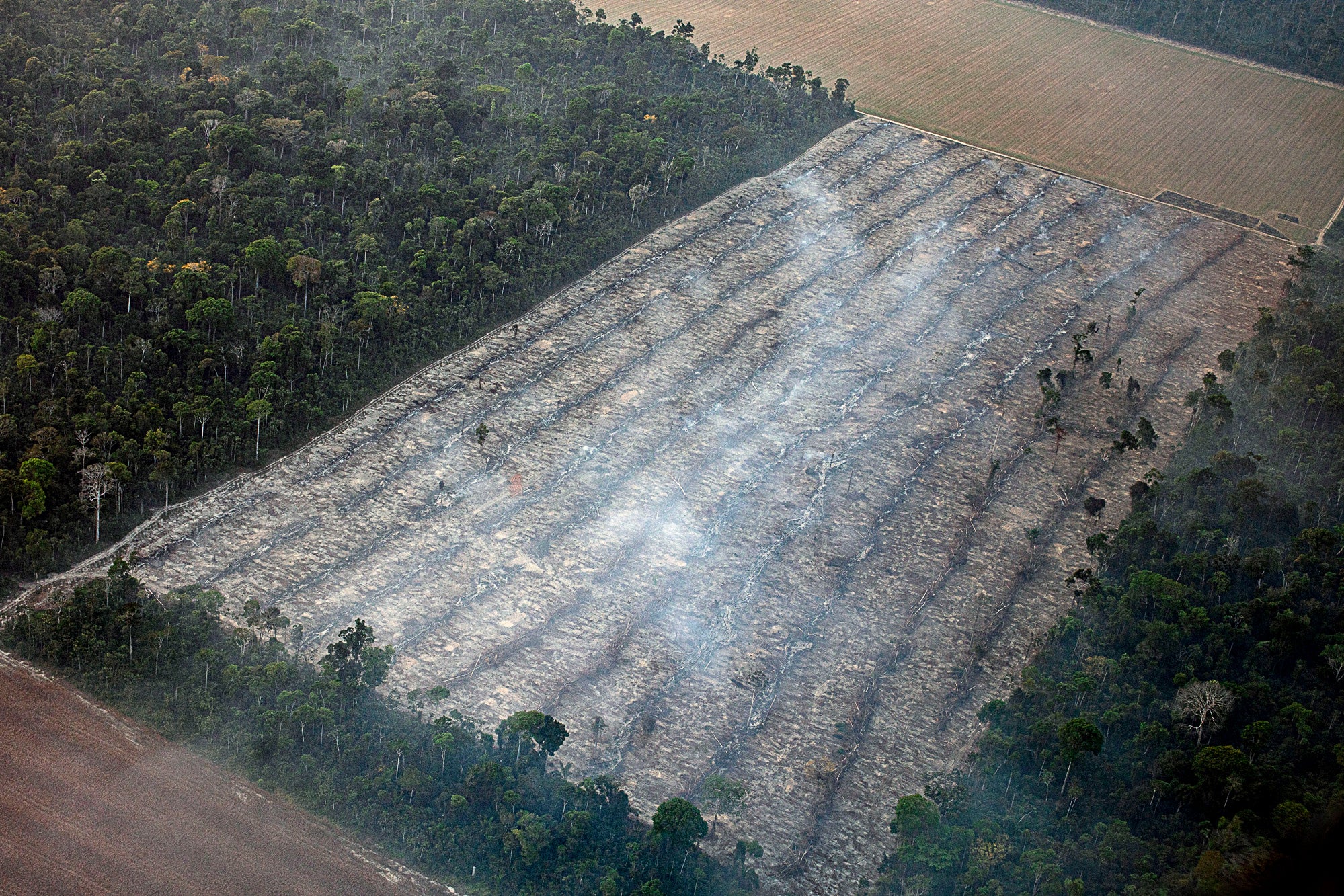
They often carry out their work illegally on indigenous lands, and protected areas, with serious consequences. In Brazil, gold is the second most exported mineral after iron, and a combination of its rocketing price, and the fact that Bolsonaro turns a blind eye to their activities, means the garimpeiros have been left undisturbed to continue their illegal work, even during the pandemic. As a result, mercury, which is a neurotoxin, contaminates rivers, builds up in fish and enters the food chain, with serious heath consequences.
In the Tapajos basin, which is home to the Munduruku population, an estimated 30 tons of gold are illegally commercialised every year, six times more than the legal activity in the region, resulting in these indigenous people ingesting up to 18 times more mercury than the safe limit. The garimpeiros wreak destruction, not just from clearing forests and polluting ecosystems, but their presence exposes indigenous people to alcohol, drugs, prostitution and sexually transmitted diseases – as well as Covid – in the territories in which they operate.
Bolsonaro, whose father was a garimpeiro, has done nothing to stop this illegal invasion of indigenous lands. Loggers, ranchers and miners all know they have the government’s blessing to do as they please and, with the focus on Covid, they know they will not be stopped.
“All in all, Bolsonaro’s government has been an utter disaster,” said Fiona Watson, advocacy director for Survival International, “and he’s causing terrible suffering to the indigenous people.
“I’m extremely worried. There are big constitutional battles on the horizon, because if the Supreme Court rules in favour of the Time Limit Trick, people behind Bill 191 will then claim there is lots of land that isn’t indigenous territory. This means Bill 191 will be much more likely to be passed.”
Watson went on to say that the government is at fault for not demarcating indigenous territory in the time frame given, and that this will be seized upon by the mining industry and others to open up indigenous territories for extraction processes, and lead to a massive land grab.
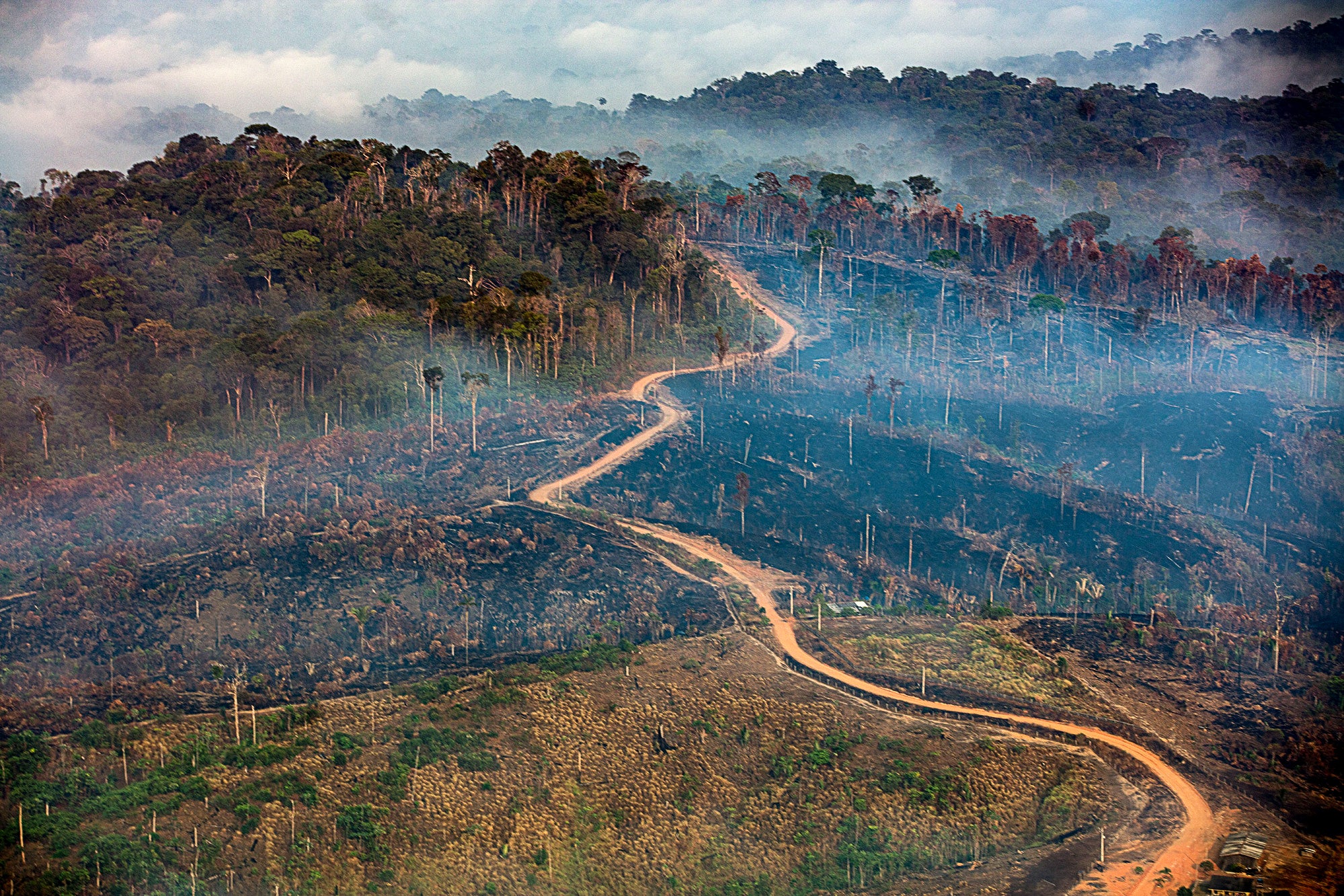
“That’s one of my big fears of this bill,” she said. “This proposed legislation doesn’t give indigenous people any right of veto, which is unconstitutional. If the bill goes through, it will send out a message that it’s a free-for-all. How will this be controlled?”
By dismantling the constitutional protections for indigenous people and protected areas, Bill 191 may well open the floodgates, not just for the garimpeiros but also for the big extractive corporations to come in. As technology has improved, these industries are capable of causing increasing damage to our planet and all the life it supports.
Mining and its associated infrastructure is disastrous, environmentally and socially, causing major deforestation and pollution, and opens up remote indigenous territories to outsiders. Large-scale open-cast mining uses heavy machinery to blast and dig holes in the ground and results in huge amounts of toxic waste, which is stored in tailings dams. The problem of mining waste has grown exponentially as mines have increased in size.
Brazil has had its fair share of mining disasters. In the Mariana dam disaster of 2015, and the country’s worst mining disaster at Brumadinho in 2019, the earth-filled tailings dams – which are supposed to store byproducts of mining – failed, resulting in mud-flow containing toxic waste, travelling vast distances, devastating villages and water sources, heavily polluting land, and leaving many homeless or dead. However, these are not isolated incidents, and there are many who worry that it is only a matter of time before such disasters occur again if the bill goes ahead.
Bolsonaro favours mining and knows that these multinationals will pay huge amounts in taxes, but that tax income just doesn’t reach the people in the street
Andrew Hickman, part of London Mining Network’s Brazil working group, is all too aware of the destruction large-scale mining companies can cause. He visited Brumadinho, a mining town controlled and dominated by the Brazilian mining giant Vale, in 2019, seven months after the tailings dam failed.
“What I experienced was grief like I had never experienced before, anywhere. What I saw was a town that felt completely decimated and in extreme trauma. Brumadinho is a town with a population of around 30,000 people, but the disaster killed 300, meaning everyone in the town was affected somehow,” he said. Since then, many more tailings dams across Brazil have been found to be at risk of collapse.
“These companies have operations around the world and make billions each year. They’re as powerful as small countries and their impact is huge. London Mining Network exists because the comeback to mining company actions are so inadequate, and communities often feel completely powerless against them.
“Bolsonaro favours mining, and knows that these multinationals will pay huge amounts in taxes but, certainly in my experience, that tax income just doesn’t reach the people in the street, particularly all those communities whose lives have been ripped up by living in the shadow of these mines.”
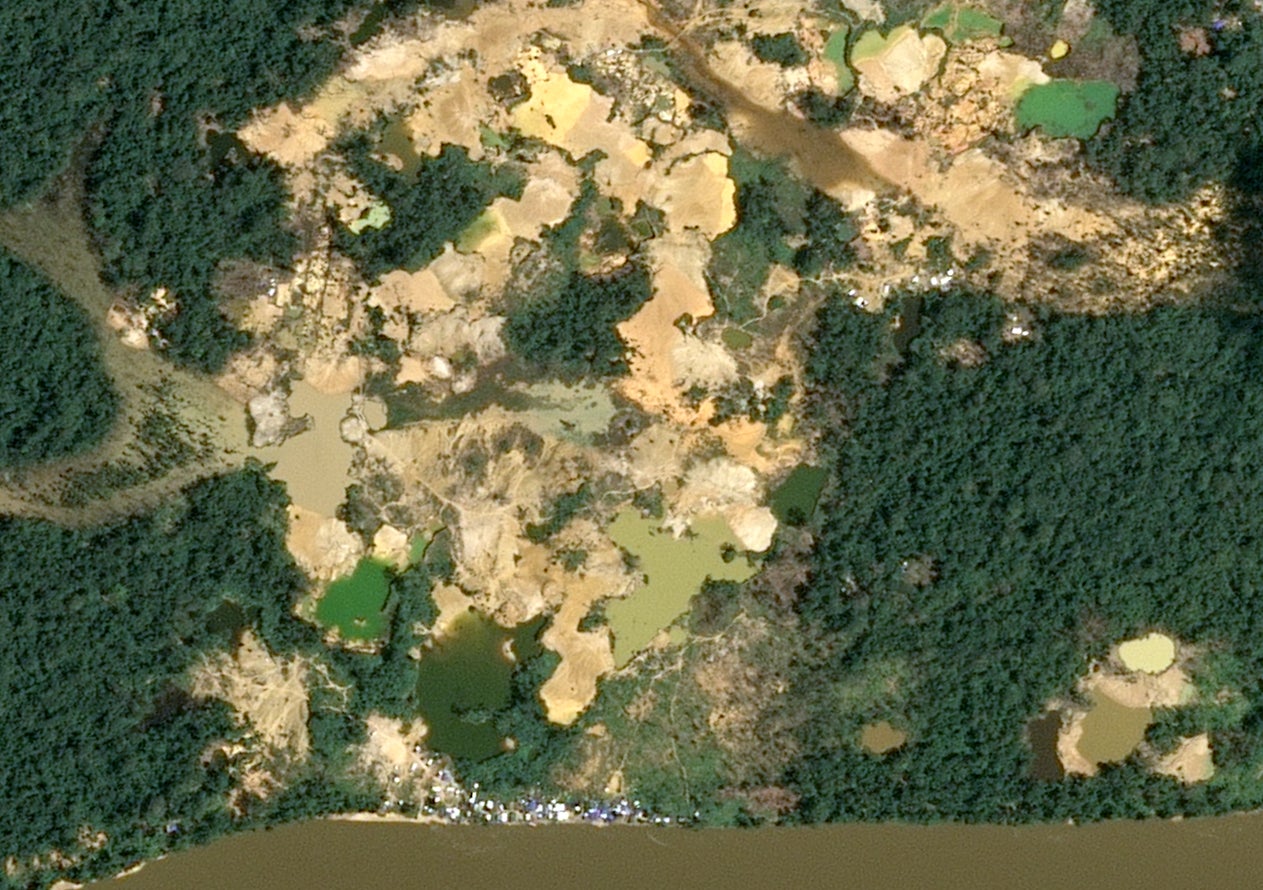
Like Watson, Hickman talks of the repression, intimidation, conflict and surveillance, that people in these mining areas face every day. “The mining companies create havoc, not just to the environment and livelihoods of these people, but socially as well. The normal structures by which a rural society organises itself are ripped apart and conflict becomes commonplace,” he said.
“Mining companies stay within the law because they have to, but if someone like Bolsonaro makes it legal for extractive industries to operate on protected and indigenous lands, then most would take full advantage of this fact and mine on them.”
Despite the existing mining ban, large national and international mining companies have, since the 1990s, filed hundreds of requests with the National Mining Agency for “analysis” of deposits on indigenous land.
According to research by Amazon Watch and Apib, official mining exploration requests in Indigenous Amazonian territory has risen by 91 per cent since the beginning of the Bolsonaro administration. Last year, an investigation by the InfoAmazonia project discovered Brazil’s National Mining Agency (ANM) to be actively entertaining more than 3,000 of these requests. The research uncovered dozens of applications being filed with ANM every year, with the agency not rejecting them immediately as it is obliged to do, but keeping them on file.
Anglo American is one of the multinationals singled out because of the extent of its activities in indigenous lands in the Amazon
In Amazon Watch and Apib’s Complicity in Destruction report, Anglo American is one of the multinationals singled out because of the extent of its activities’ current or potential impact in indigenous lands in the Amazon, and its ties with the international finance sector, which continues to enable this behaviour, and ultimately the destruction of the forest.
Anglo American is one of the biggest multi-national mining companies in the world and, similar to the mining corporation that was involved with the Mariana dam collapse, BHP Billiton, is British listed. Projects include its Minas Rio operation in Brazil, which had to temporarily suspend operations in 2018 due to a leak in its 500km slurry pipeline, the largest in the world.
“Our report identified more than 300 Anglo American research applications that focused on indigenous lands – by far the most requests belonging to one company in the system,” said Miranda. “In our opinion, it clearly indicated Anglo’s intentions to build a market reserve, in case the legislation regarding mining indigenous lands changed.”
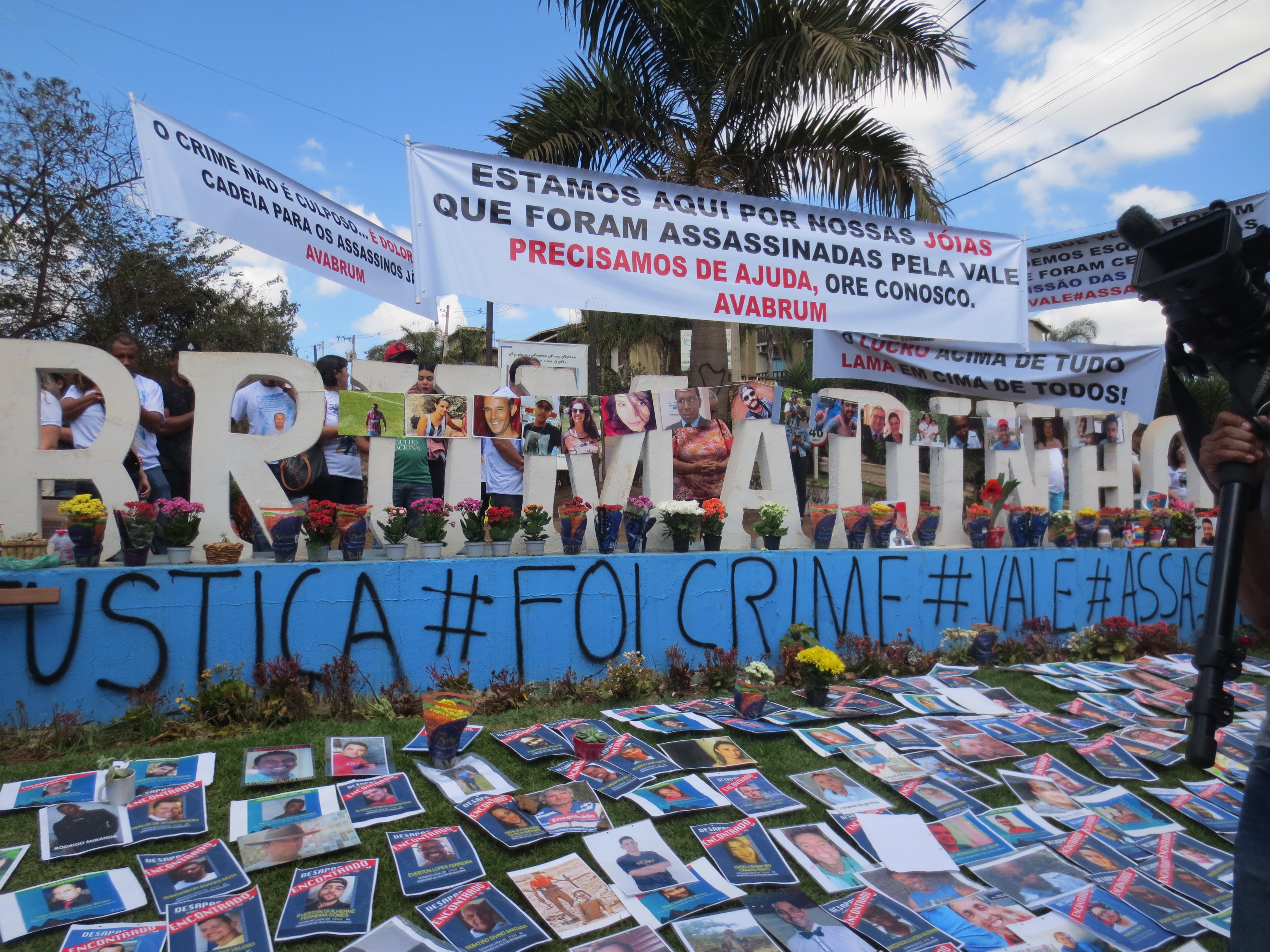
Anglo American has repeatedly stated that “it has given up all mineral research requirements located within indigenous lands”, but several of those requests are still on record with the ANM. They have also responded to our (and Apib’s) request to commit to stay out of indigenous lands, regardless of changes in legislation, with a statement that they are “not in a position” to do that. We are particularly concerned about the situation of 27 processes filed by Anglo American that were authorised by the ANM.
“Any research activities there, would directly interfere in the indigenous lands,” said Miranda. “Anglo American has not yet clarified if they have given up on these processes too.” We have been pushing Anglo American to commit to consultation procedures as soon as possible in the prospecting phase, even before registering a research application with ANM. Our first discussions have shown they are not very willing to do that,” she said. Systemic change needs to occur. Between January 2017 and May 2020, Anglo American received no less than 13 billion Euros from 25 financial institutions from around the world. Among these international financiers are British companies Standard Chartered, Barclays and HSBC.
“Anglo American is not carrying out, or planning to carry out, any activity on Indigenous Lands in Brazil,” the company told The Independent in a statement. “We are aware of the difficult history that has existed between Indigenous Peoples and the mining industry. However, we know that mining, when undertaken responsibly, can bring significant economic and social value to host communities. As a matter of principle, Anglo American always adheres to local laws and international standards when engaging with indigenous peoples.”
Read More:
London is one of the main centres for global industries such as mining giants, agribusiness empires, and oil and gas companies, which all need the money markets, and the backing of corporate investors to finance their projects and continue operating.
International public opinion and shareholder action needs to play an important part in exposing this international web of power and corruption in order to preserve the communities and habitats that Bolsonaro is trying so hard to destroy. International governments, who import these extractive resources and advocate for climate change and protection of the Amazon, need to put these issues higher up on their agenda.
Join our commenting forum
Join thought-provoking conversations, follow other Independent readers and see their replies
Comments
Bookmark popover
Removed from bookmarks